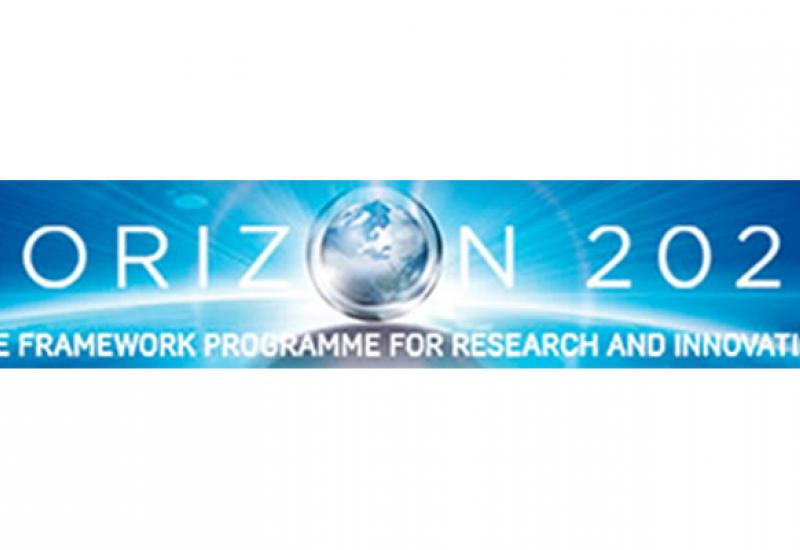The main objective of the programme Horizon 2020 is to promote sustainable economic development of the countries of the European Union and associated countries by supporting research and innovation in key areas of development of economy and society. One such area is that of information and communication technology (ICT), which cover a wide range of sectors – from social issues to the industrial areas.
In cooperation with the European Union Ukraine has also joined the program "Horizon 2020". This Ukrainian scientists have the opportunity to participate in international projects and conduct research together with colleagues from EU countries.
October 13, 2015 approved work programme for 2016-2017 for programme "Horizon 2020". In her competitions (Calls) are designed to support partnerships between the private and public sectors (PPP). This partnership will open up Europe to new possibilities, which primarily will improve the competitiveness of the European market in many sectors of ICT. In particular, as specified in the work program, in industries of electronics, Photonics, robotics, as well as in the areas of Big Data, computing, embedded and network systems. It is these sectors that, in the opinion of the European Commission, have the greatest potential to preserve the leading position of Europe in the global market.
The analysis of the Working of the ICT programme for 2016-2017 suggests that the most urgent in this area for the European Commission there are two main directions of development: "Future Internet" and "Content" (Fig. 1, 2 – ranking of research areas according to the number and amount of funding).
The greatest number of contests (eleven!) presented in the category "Content" (Content). This is due to the fact that today Europe needs to strengthen its position, not least as a supplier of services and products. In today's computerized and globalized society there is a growing demand for quality content. The question of obtaining accurate and accessible data is critical, given the world enormous amounts of information, for structuring and processing using the approaches, means and methods of the so-called big data – Big Data. To satisfy the desire of consumers to have access to information by expanding the possibilities for the creation, management and use of data that, in turn, will provide an opportunity to disseminate information, make knowledge accessible to society.
Directly by approaches and tools of Big Data are linked five contests, and they are focused on the partnership between the private and public sectors (PPP). The relevance of Big Data processing is significantly associated with the increase in bandwidth of communication channels, including the Internet.
So the second place by number of competitions (7 competitions) took the theme "Future Internet" (Future Internet). This is because at the same time with the increasing number of Internet users, new challenges emerge, particularly in the field of security of data links, their privacy, avoid information leakage. Widespread adoption and use of Internet technologies brings network infrastructure in tough conditions. As a consequence, the task of providing complete solutions to technological problems and innovation needs of Europe's leading roles in the development in the field of the Internet.
Given the distribution of budgets in areas within the Working program, it can be argued that, indeed, the "Future Internet" and "Content" is the most actual directions of research for the European Commission (Fig. 2).
Fundamental industries that support innovation in the ICT sector is also the sector of electronics, Microsystems and embedded systems. They are presented in the direction of "a New generation of systems and components" (A new generation of components and systems). Contests in this area offer a wide range of tasks at various levels of system integration – from the sphere of the development of organic electronics and micro "smart" components in the field of cyber-physical systems. There are four of them. The task of developing "smart" cyber-physical systems focuses on model-centric engineering methods. To solve problems in electronics (TOLAE – Thin, Organic and Large Area Electronics) most effectively can be used in micro - and nanotechnology, and research in this field mainly focus on the innovations that are based on TOLAE. The problem, as far as the "smart" integration, aimed at the integration of materials and electronics in ultra-low system with the aim of expanding the range of their use. Competition "Smart things everywhere" (Smart Anything Everywhere) should lead to improved innovative performance in the development of digital products by promoting the growth of the popularity of these technologies among small and medium-sized enterprises. Special attention this theme focuses on the opportunities dangerous work in real-time (real-time), which to some extent complements the topics "Future Internet".
The European Commission also stresses the importance of robotics and Autonomous systems. Today industrial robotics has become one of the cornerstones in the industrial industry, primarily in engineering. And by 2025, robotics and Autonomous vehicles potentially provide an annual economic benefit not less than that from mobile Internet, advanced materials and energy markets. Not smaller effect can be expected from the introduction of robots in the vast majority of spheres of human life – in health, agriculture, the field of logistics and transport. The basic idea incorporated in the work program, is to achieve the release of laboratory results to the market and close cooperation with enterprises and end users. So the theme "Robotics and Autonomous systems" (Robotics and Autonomous Systems) is presented in the Working program 4 competitions: systems design, interactive communication, mechatronics (mechatronics) and navigation.
A smaller number of tenders submitted other areas: "Supporting enterprises and innovations" (innovation and Entrepreneurship support), "Key technologies in ICT" (ICT, Key Enabling Technologies), "international cooperation" (International Cooperation Activities) – 3 contests, "advanced computing technologies and cloud computing" (Advanced Computing and Cloud Computing), "Responsibility and creativity" (Creativity and Responsibility) – 2 contest.
So, a wide range of competitions of the program "Horizon 2020" work programme for 2016-2017 in the direction of the ICT provides real Ukrainian scientists the opportunity to obtain financial support to conduct research and create innovations.



